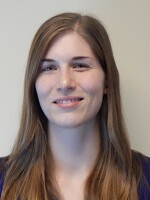From Rebel Without a Cause, to The Breakfast Club, to 10 Things I Hate About You, coming-of-age movies have been around for almost as long as the film industry.
Lady Bird, Greta Gerwig’s directorial debut, is the latest offering in the genre. The film tells the semi-autobiographical story of Christine “Lady Bird” McPherson (Saoirse Ronan) in her final year of high school in Sacramento, California. Set in the early 2000s, Lady Bird shows how America was changing post 9/11, and how Lady Bird’s perspective on her hometown, her family, and her life were changing along with it.
"I think that Lady Bird is a great step forward for (director Greta Gerwig). This movie works very well as a compelling, genuine statement of herself," says film contributor Dave Luhrssen.
With details such as the soundtrack to the popular shell necklaces teenagers wore proudly, Lady Bird gives audiences a reminder of not just the timeframe, but our shared emotions and struggles, he says.
https://www.youtube.com/watch?v=cNi_HC839Wo
"I think it has universal meaning," notes Luhrssen. "(Lady Bird is) faced with a a great many things, including finding herself in terms of her emotions, in terms of her sexual exploration. So a lot of things are going on for a teenager of that year. I think the movie encapsulates that time of life very well."
One relationship depicted well, he says, is the mother-daughter dynamic between Lady Bird and Marion McPherson (Laurie Metcalf). While Lady Bird is full of whimsy and dreams of attending college on the east coast, her mother must constantly remind her of the realities of grades, schools and money.
"One would peg the mother then as being a typical sort of grouchy, guilt-trip laying on kind of person that you're not going to like. But as the movie goes on you find a much broader person," says Luhrssen. "She has a lot of burdens, and one can really understand the pressures that she is under just as well as one can understand the protagonist, Lady Bird, in this film."
He also notes that Lady Bird does a great job of showing how the majority of people live in America - not just the one or ten percent. "The economic precariousness of the lower middle class is something I don't think is being discussed enough - certainly not in Hollywood movies."
Luhrssen says that all of the other supporting actors (including veteran actors Lois Smith and Tracy Letts) add great depth to the story as well, instead of just playing high school stereotypes. "All of the actors in this film seem to really bring their characters alive with a deep kind of understanding for who they were."
The film's impact on the audience is one that will outlast the time spent sitting in the theater, he adds. "It's a very deft touch where you can move people and make an audience aware of the difficulties that realistic characters are having and still leave the theater feeling bright in some way."








